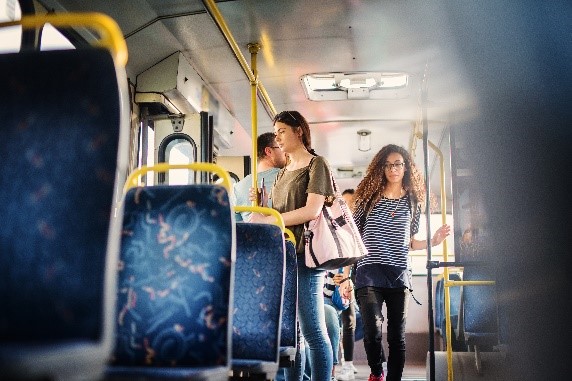The Memphis Area Transit Authority’s (MATA) board of commissioners decided Tuesday to keep transit service “the same until further notice,” despite proposed changes slated for February 2024.
The board met in October of 2023 and decided to put a pause on proposed service changes that were due to go into effect this month. After hearing input from the public, the board questioned the effectiveness of the changes, and tabled the decision for the December meeting.
The agency has repeatedly stressed that these changes are necessary to “give the community service it can rely on.” MATA has a shortage of mechanics. This means bus repairs take longer, meaning more buses are out of service. The changes would free up buses for better service on some of the most-used routes. Officials said that they are currently missing 20 percent of all of their scheduled trips.
According to MATA CEO, Gary Rosenfeld, these service changes help to make service more reliable.
“The important thing in transit is that what you show on the printed schedule, that bus will arrive,” said Rosenfeld. “We understand that’s a severe impact to our existing customers, so that’s the purpose of these changes, is to help align our service better with the service we could provide.”
Prior to the October board meeting, the agency held 12 public meetings to discuss the proposed changes and to hear public feedback. According to the agency, the most common comments were concerning the “negative impact of the proposed service end time of 7 p.m.,” and “employment areas such as the airport and logistic centers.”
MATA recommended adjustments to the routes 30-Brooks and Route 69-Winchester. It also proposed extending the service time beyond 7 p.m., for their “high-performing nighttime routes.” This included 8- Chelsea and Highland, 11-Frayser, 30-Brooks, 32-Hollywood and Hawkins Mill, 36-Lamar, 39-South Third, 42-Crosstown, 50-Poplar, 52-Jackson, and 100-Main Street Trolley.
The board was presented with a number of options that included combinations of proposed service changes with headway variations (the amount of time it takes for one bus to come after the next) and route suspensions. MATA also included options that would “impact service areas with fixed-route changes.”
Option one allowed for MATA service to remain “the same as it is today.” All further options included adjusted headways with route suspensions, with either a few or no additional options.
Option two proposed for weekday service to run until 11 p.m., Saturday service until 10:00 p.m., and Sunday service until 6:00 p.m.
The third option would have weekday and Saturday service run until 7 p.m., and Sunday service until 6 p.m. Officials also said that this option would potentially include the “MATA Night Groove Service,” which would run seven days a week, from 7 pm. to 11 p.m., with “15-20 minute frequency.”
Option four was deemed “most severe,” as it would suspend weekday and Saturday service at 7 p.m, Sunday service at 6 p.m., with no Night Groove option.
Many urged the board to vote in favor of option one, including Tennessee Rep. Justin J. Pearson (D-Memphis.)
“The community needs more time to understand what the consequence of this decision is going to be,” said Pearson. “These are real consequences. When you think about environmental justice, economic justice, social justice in our communities, which all relate to racial justice, it has real implications.
“To make a decision at this point without more input from the community about the consequences…we need more time as a community to find out what the best solutions are.”
